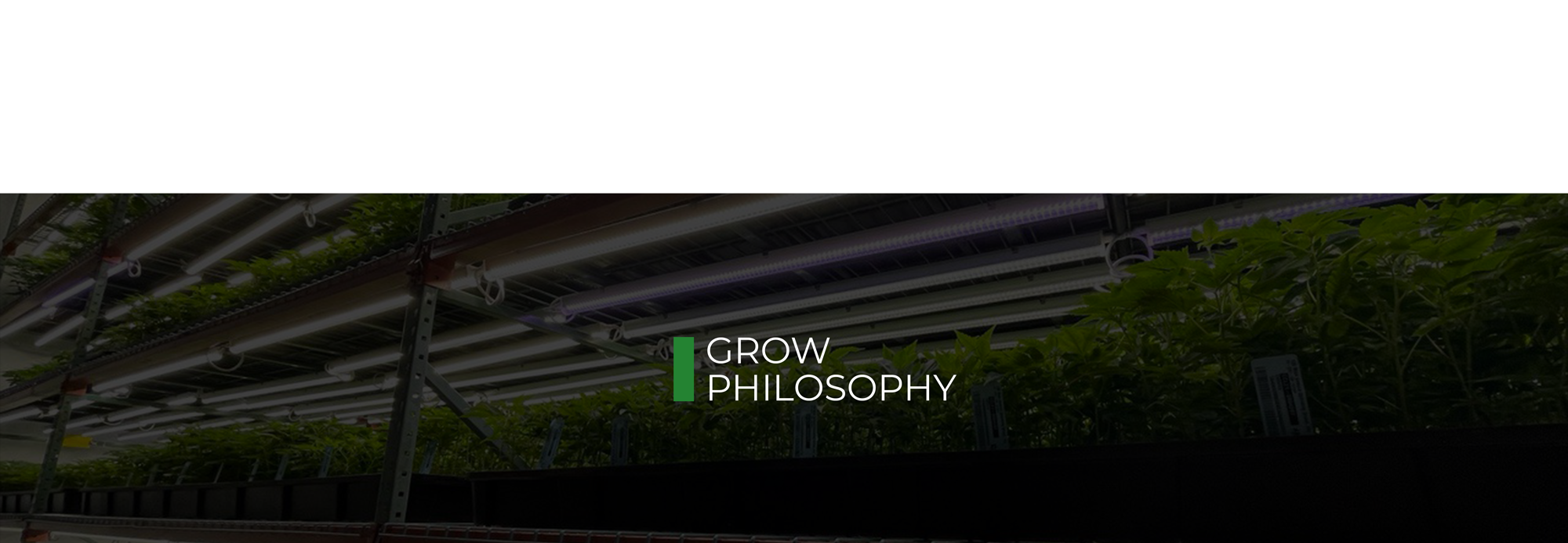
Not all cannabis tissue culture is created equal
The two primary methods of tissue culture micropropagation are Meristematic and Nodal.
At Phinest Cannabis, we've made the strategic decision to change our entire production methodology from Nodal to Meristematic this year, in the face of widespread and increasingly virulent pathogens impacting cannabis. Read on to find out why.
MERISTEMATIC TISSUE CULTURE
Extracts a tiny cluster of cells as small as the width of a hair from the very tip of new shoots where no plant vascular system has yet developed, then uses targeted hormones to generate an entirely pest-free plant free of all known pathogens.
Meristem tip culture is the only known method to produce and maintain pathogen-free plants. Since the cells are extracted from an area of the plant with no exposure to the vascular system, meristem-derived plants are 100% free from all known pathogens, including Hop Latent Viroid (HLVd) and Alfalfa Mosaic Virus.
Meristematic TC also eliminates harmful bacteria. This creates an environment where the cannabis DNA is free to fully express itself, leading to robust terpene and cannabinoid development.
Speed. The process of producing clones from Meristematic TC takes considerably longer than from Nodal TC.
NODAL TISSUE CULTURE
Cultures entire nodes from the donor plant, then uses targeted hormones to generate a new plant that is pest-free, but still infected with any systemic bacteria, fungi, viruses, or viroids the donor plant originally had.
Nodal is faster because the process starts with an already-grown shoot tip or node that is much larger than the tiny cluster of cells used for Meristematic IC. Nodal IC is typically used when the donor plant only needs to be free of pests.
Nodal TC does not eliminate deadly pathogens such as Hop Latent Viroid (HLVd) or new diseases such as Alfalfa Mosaic Virus.
Nodal TC also does not fully eliminate bacteria. Heavy bacterial load accumulated from years of repeated cloning can impede plant growth and create greater vulnerability to environmental stresses and disease.
Why Phinest Switched from Nodal to Meristematic Tissue Culture
We took the decision to switch production methods in 2023 as we began to see laboratory and media reports that Hop Latent Viroid was spreading in cannabis stock that had undergone Nodal Tissue Culture. The appearance this year of Alfalfa Mosaic Virus in the California cannabis crop made it even more clear that we needed to switch to the most sanitary possible method of tissue culture, to deliver 100% disease-free clones to our customers.



